Reaching more empowered consumers
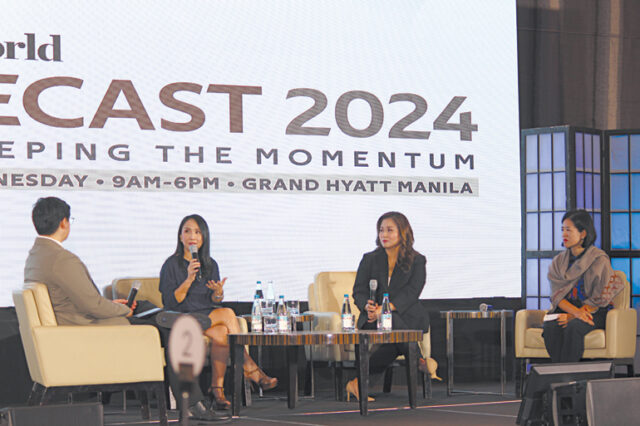
By Angela Kiara S. Brillantes, Special Features and Content Writer
A big part of changes taking place in the economy involves changes in consumer behavior, which organizations and brands adapt to in order to remain relevant and responsive to their markets. One of these recent changes that businesses should not miss is that consumers are now being more empowered by information, tools, technology, and support they need for making their own decisions on what to purchase and consume.
In the third panel discussion of BusinessWorld Forecast 2024 last Nov. 22, themed “Points of Convergence: Meeting Consumers Where They Currently Are,” industry experts and executives from Bain & Company, Global Dominion Financing, Inc., and Globe Telecom discuss how consumer empowerment is driving and can further drive the way companies are reaching their customers.
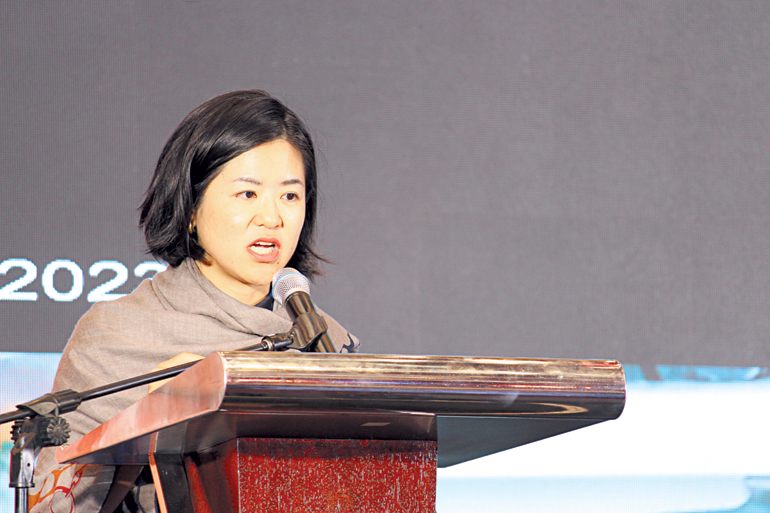
As one of the fastest-growing economies in the world, Southeast Asia is experiencing fundamental economic and consumer shifts. More particularly, in the Philippines, the shift to higher levels of lifestyle resulted in an increase in consumer spending as well. According to Yukiko Tsukamoto, partner at Bain & Company, citing recent reports from the firm’s end, consumer spending is projected to double by 2030 as 75% of the population shifts to mid-high-income lifestyles.
“As the GDP per capita grows, there will be a rocket effect on the consumption and on things they will spend money on. Even today, we observe this. [Consumer] fitness is close to three times high, consumer electronics are two times high, and you’ll understand that when you become richer. Your base of lifestyle becomes better and you start to look for your health, you start to look for better iPhones. This is why consumers are starting to spend more, and we expect this spend to further increase as the Filipino consumers redefine what is the basic need is. Their basic need is now expanding into more and more categories,” Ms. Tsukamoto explained.
Engaging with Filipino consumers comes in two phases — purchasing and discovery. According to Bain & Company, research revealed that the Philippines is among the highest digital users in the world, and using the digital platform is essential for engaging with Filipino consumers.
“The purchase will happen more and more on e-commerce, they really want to buy online because it’s easier and more convenient, and you can do it anytime you want. The survey also suggests that a lot of people prefer to do it in a marketplace (Lazada, Shoppee, etc.),” Ms. Tsukamoto explained.
Ms. Tsukamoto also noted that the digital space serves as consumers’ channel for discovery. The digital space gives consumers closer access to product and brand information, as well as consumer preference reviews, which not only help consumers in decision making but also has the potential in improving the image of brands.
Bain & Company’s report showed a majority of Filipino consumers are tech-savvy, and they use their phones at least 10 hours a day for emails, phone calls, web browsing, social media, etc. The digital shift, as revealed by these findings, presents an advantage for businesses to enhance consumer interactions and relationships.
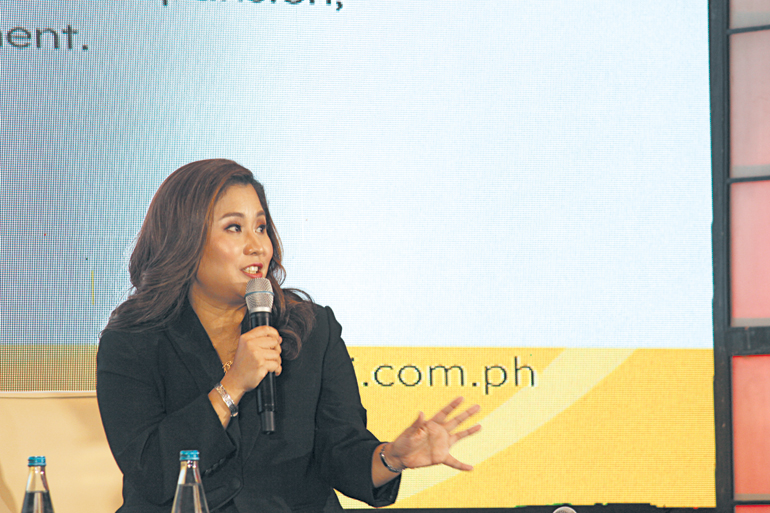
Patricia Poco-Palacios, Global Dominion Financing Inc., president & COO, said the need for building online presence while maintaining offline channels has now become a key to sustaining customer relationships in order to address their changing needs and expectations.
Known financial institutions like GDFI have served families and businesses by helping them reach their financial goals. For GDFI, utilizing the digital platform streamlined their operations. For instance, 30% of payments are made through digital banking and mobile wallets, up from previously 7%.
Similarly, Stella Christine D. Dizon, vice-president for the business-to-business segment at Globe Telecom, stated that the digital shift helped businesses provide a seamless experience and improve consumer relationships.
She shared that GCash, Globe’s payment service and mobile wallet, has proven the upside of going digital as it helped individuals and businesses adapt to new ways of doing financial transactions.
“As we shift online, we also shift how we engage with our customers; and we’ve taken great lengths to bring all of these experiences online. It is our responsibility as well to meet them in the digital world and bring all those experiences within that space,” Ms. Dizon said.
“It is our mantra to help businesses in the Philippines to grow and reach their customers better. What we’ve done and continue to try to do is help our customers in the business realm come closer to their customers as well through their own digital transformation journey,” she added.
Switching choices
While the country’s consumer spending rate is high, Ms. Tsukamoto described Filipino consumers as “not loyal” as they are more likely to switch to consumer goods that they think are more suited to their changing lifestyles.
“If you look at the things they look for, it’s the value of money, price, and quality; and they’re looking for better products. When we looked up [how consumers switch brands], they were switching to an insurgent ground. They were looking for something for me [themselves], something that has an edge; and they’re waiting to change,” Ms. Tsukamoto explained.
“But, it doesn’t mean large consumer products are doomed because a lot of these insurgents are part of their portfolio. It’s more of how you market or position yourself to be able to communicate the value of a specific customer segment.”
The panel noted that as consumer spending and expectations are expected to accelerate, businesses should use data and technology to their advantage.
“Being in the digital space has leveled the playing field for businesses and consumers. They have access to the global market already, and the power is in their hands because they can look at reviews, and compare prices in real-time, and they expect so much more from the businesses they will deal with or the brands they patronize,” Ms. Dizon of Globe said.
Becoming sustainable brands
Aside from digitalization, sustainability has been moving its way towards consumer spending and lifestyles. For consumers, making sustainable choices is crucial in achieving net zero transition.
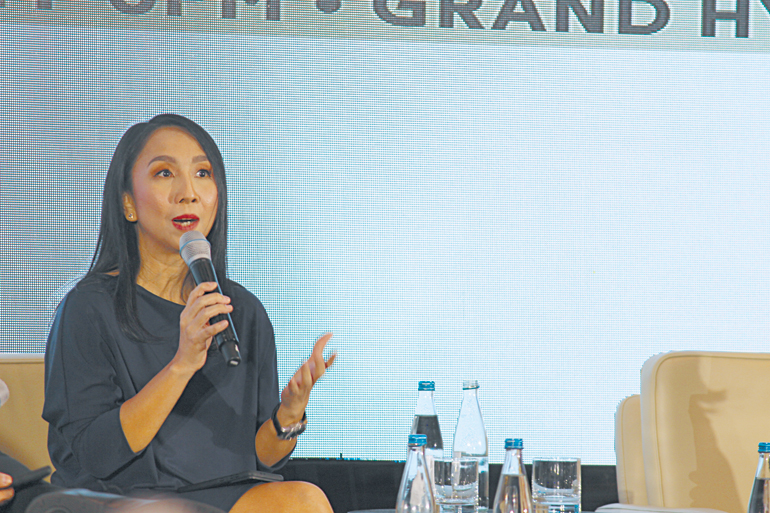
In the Philippines, many consumers are found to be more than willing to pay for sustainable products but there is still a gap in the market. According to Ms. Dizon, while 80% of consumers are interested in buying sustainable products, only a few actually do so. The success of integrating sustainability into brands depends on their accessibility, availability, and affordability.
“It is on us (companies), to be able to give them those alternatives and options because it needs to be a part or integral part of the business of what we do.” Ms. Dizon said. “At Globe, we’re a very big advocate for sustainability, it’s a very important part of our business.”
“We have to be the ones to deliver on that and we have to become that brand and commit to it as an organization,” she added. “Sustainability should be good for the organization and for the brand image.”
Sustainability is not only about environmental protection but also about consumer protection, GDFI’s Ms. Palacios added. She noted that sustainability frameworks consist of consumer protection, which is a big concern for the country’s financial sector. Moreover, the need to address financial illiteracy within the Filipino population is seen one of the sustainability goals that the financial sector should endeavor to achieve.
“It is imperative that we have a sustainability framework, and this is the direction we’re going to go and see how sustainability will be embedded in our operations. More than anything, we also feel our products and services are addressing one of the UN Development Goals which is anti-poverty,” she said.
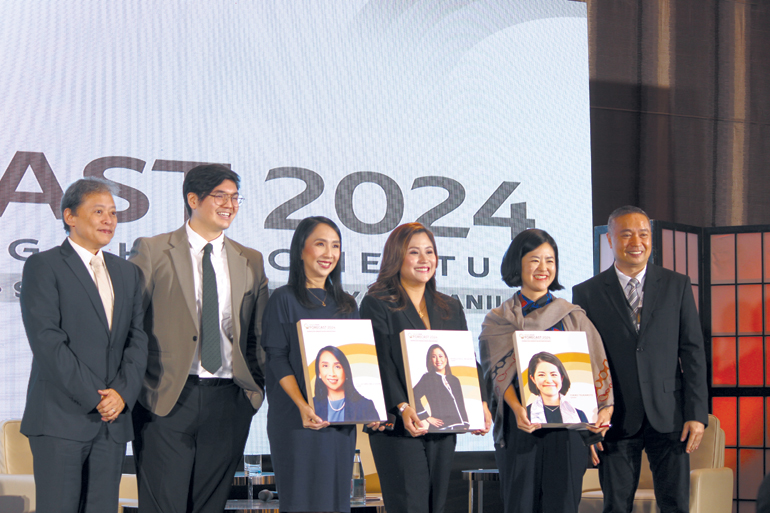
“Aside from board support, internally, our regulators, through the Financial Consumer Protection Act, have been pushing to disclose all the interest rates and for everyone to be treated fairly and equitably,” she added.



